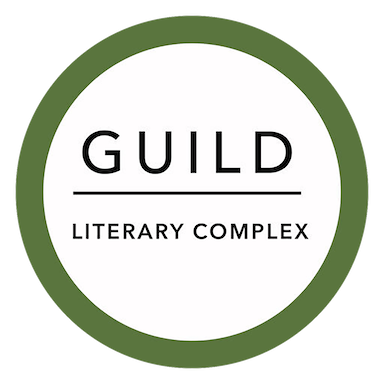A Statement from the Board of the Guild Literary Complex
Like so many others, in the wake of the killings of George Floyd, Breonna Taylor, and Rayshard Brooks, our souls have experienced a storm of emotions—outrage, frustration, grief, and for those of us of a certain older age, a particular anguish because we’ve seen this so many times before. From the riots of the 1960s in Watts, Detroit, Chicago, and Washington DC (just to name a few), to Miami in the 80s, then LA again after the verdict in the trial of the officers who beat Rodney King, to New York City after the killing of Eric Garner, to Ferguson after the killing of Michael Brown. The same tragic storyline of white persons (often in police uniform) severely injuring or killing Black persons, which ignites a furious Black community response with people marching in the streets in righteous protest.
The most recent demonstrations were not just reactions to the killing of Taylor, Floyd, and Brooks, but to a history of racist oppression, which is sadly one of our national legacies, what some have called our country’s original sin. The oppression not only manifesting itself in white on Black violence, but in inequalities and disparities that the recent pandemic has brought into even harsher focus—both in terms of Black people’s health outcomes and economic hardships.
The tragedy of Brooks, Floyd, and Taylor, and the deaths of other Black Americans under similar circumstances—Ahmaud Arbery, Alton Sterling—calls upon all of us to redouble our efforts to end systemic racial oppression and to bring to full reality the phrase, “with liberty and justice for all” from the Pledge of Allegiance, which ironically was drafted in part as a negative nativist response to southern and eastern European immigrants in the late 19th Century.
The role of the arts will, as always, be crucial in the efforts to end systemic racism. It’s what James Baldwin meant by taking on the responsibility of bearing witness and articulating the truth. We creatives must continue to bear witness and speak truth, for audiences today and generations to come. It’s been encouraging over the past fortnight to see some of our local arts organizations and publications that focus on the arts, moving beyond mere lip service and offering specific platforms and programing in support of the Black oppressed.
And as it has since its inception thirty years ago, the Guild Literary Complex will continue to support and elevate voices of pride and protest through such offerings as “Voices of Protest”, Palabra Pura, and the “Gwendolyn BrooksDay” celebration, the latest of which was two weeks ago. The BrooksDay event is particularly apt because her life is a model for all of us. She not only bore witness through her poetry and prose, but she was also an active participant in her world through her philanthropy, teaching, and social activism. A complete life.
A number of our local creative communities have been doing that for some time now. More need to. Creativity and active participation, whether the participation involves marching, filling out the census (so you will be counted), or looking around your community, your school, your job, your nonprofit organization, and asking yourself: “Within my sphere of influence, is there liberty and justice for all?” And wherever in your life you see that the answer is no, committing yourself to significantly changing the situation for the better. Which may well mean creating a more diverse and inclusive reality within those spheres of influence. And of course, it also includes voting for candidates who put liberty and justice for all at the top of their list of priorities. And when those people are elected, holding those officeholders accountable.
We are at a tipping point in our nation’s history. This is a moment that we must seize to make meaningful strides to bring about the end of systemic white racism. If we don’t, it will eventually—perhaps sooner than we would like to think—end the country. And whatever we’re left with, it’s not likely to be anything like liberty and justice for all.
While the task is daunting (for the power brokers of systemic racism will not go quietly into the good night), we should not forget that Black people have faced greater struggles. It was a greater struggle for former slaves like Fredrick Douglas and Sojourner Truth, anti-lynching heroines like Ida B. Wells, and of course martyrs like the Rev. Dr. Martin Luther King Jr. They, and millions of uncelebrated African Americans—the parents, grandparents, and great-grandparents of many of the young people who’ve been bearing witness by marching in the streets—have in their lives gone up against a systemic white racism that was more overt, widespread, and entrenched than what confronts us today. They didn’t give up, neither can we. And so, in the spirit of creative Chicagoan Curtis Mayfield, we have to “keep on pushing,” We must stand in solidarity and say: “No more martyrs! Black Lives Matter!”
